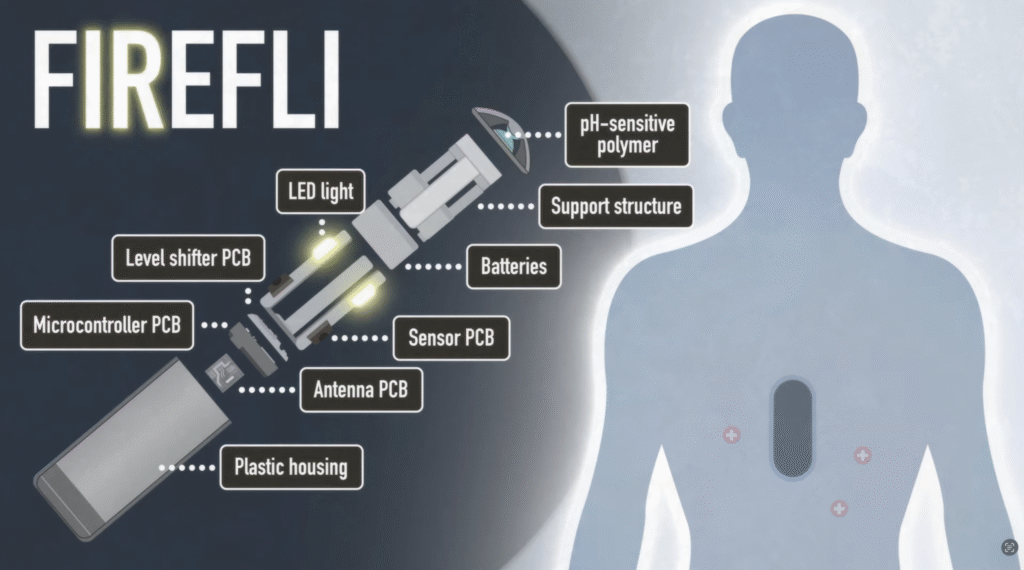Researchers at Mass General Brigham and MIT have developed a swallowable biosensor capsule that can detect acute mesenteric ischemia—a life-threatening condition caused by reduced blood flow to the intestines—with remarkable accuracy. The device, called FIREFLI (Finding Ischemia via Reflectance of Light), was inspired by the bioluminescent chemistry of fireflies and uses light-based sensing to identify oxygen-deprived intestinal tissue.
Acute mesenteric ischemia accounts for less than 1.5% of emergency visits for abdominal pain but has a mortality rate of 55%, largely due to delayed diagnosis. Current diagnostic methods rely on imaging and invasive procedures, which are often too slow to prevent irreversible damage. FIREFLI aims to change that by offering a fast, noninvasive, and accessible alternative.
The capsule contains a pH-sensitive luciferase enzyme that emits light when activated by the small intestine’s environment. Ischemic tissue reflects less light than healthy tissue, allowing the capsule to detect abnormalities in real time. The emitted light is measured and wirelessly transmitted to an external device, such as a smartphone, enabling clinicians to assess intestinal health remotely.
In preclinical trials involving nine pigs, FIREFLI achieved 98% sensitivity and 85% specificity, correctly identifying ischemia in 90% of cases. The technology could reduce unnecessary imaging, speed up triage in emergency departments, and expand access to diagnostic care in resource-limited settings. Researchers envision future versions of the capsule that combine sensing, wireless communication, and targeted drug delivery.
Take a look at this video explaining more about the biosensor:
Article from MGB: Ingestible Biosensor Pill for At-Home Monitoring of Intestinal Inflammation
Abstract in Science Robotics: An ingestible capsule for luminance-based diagnosis of mesenteric ischemia

